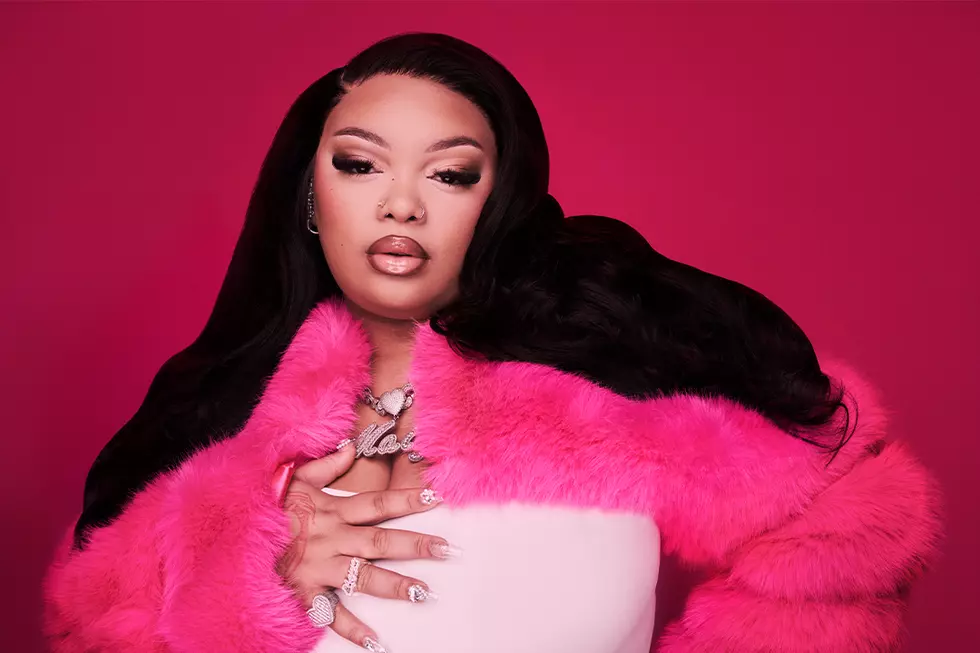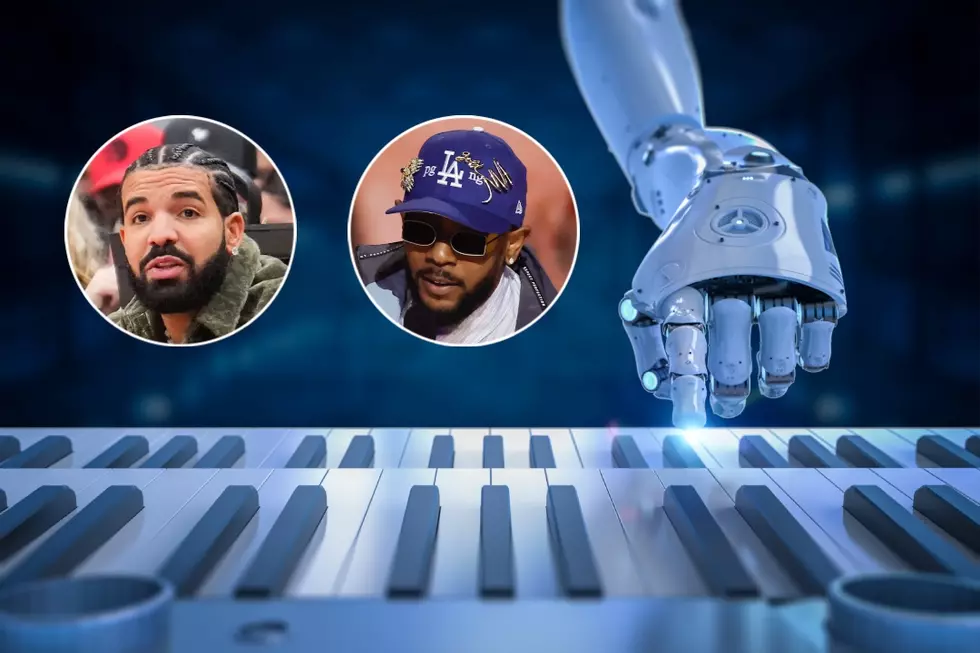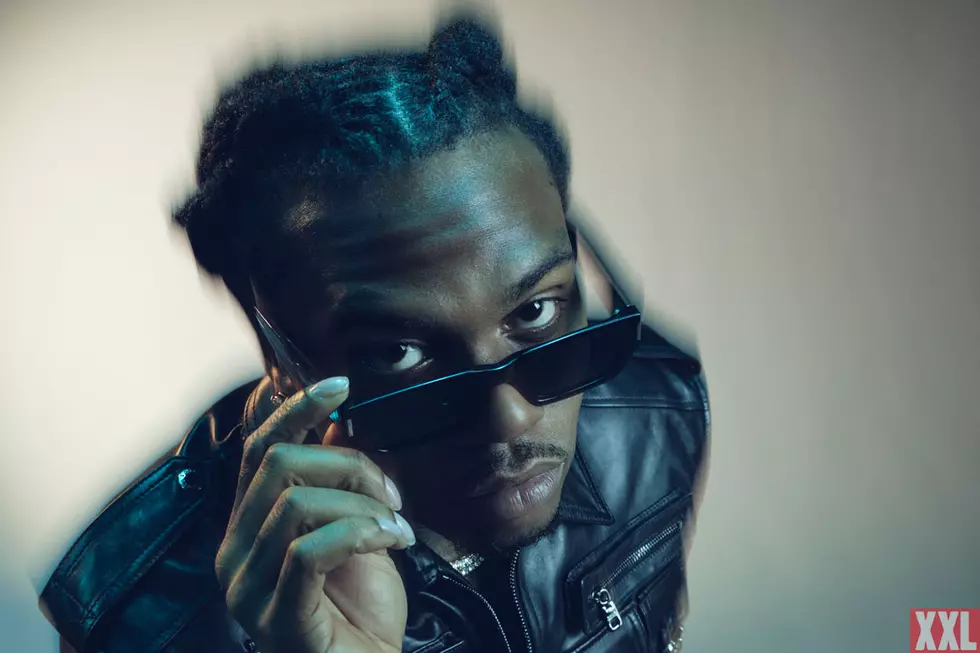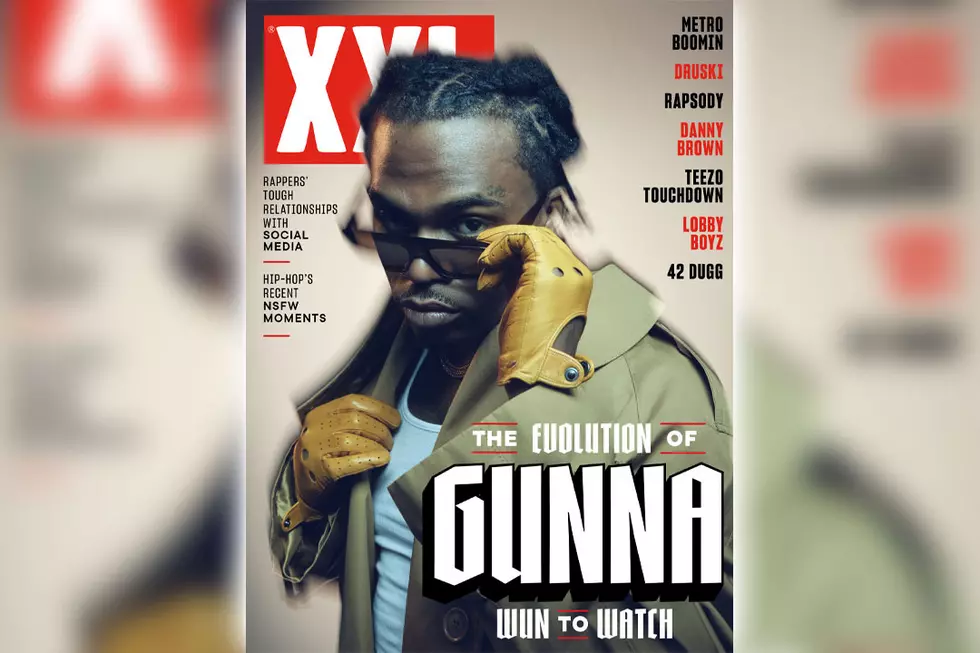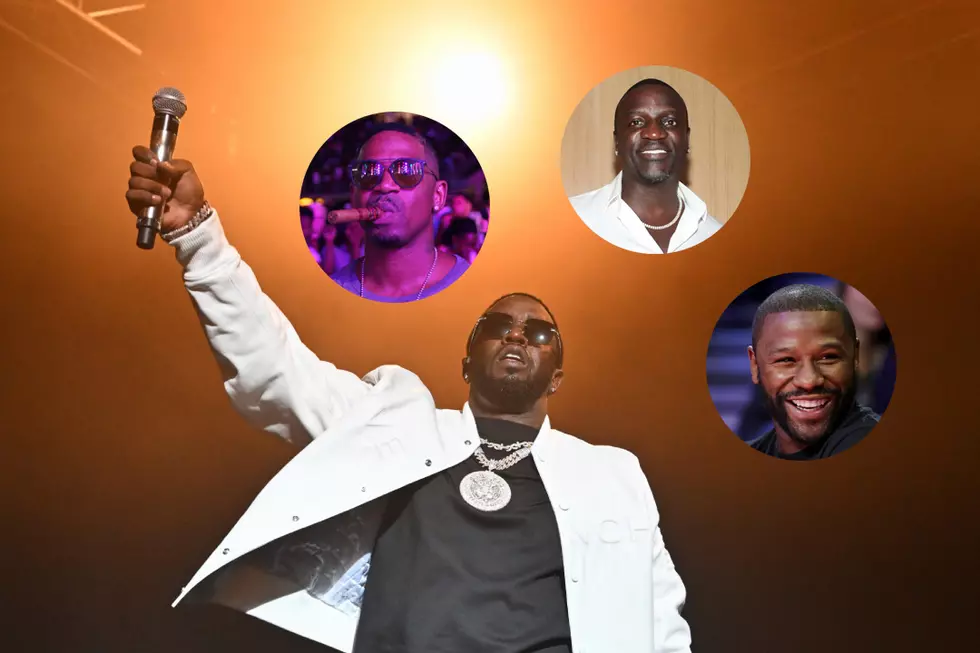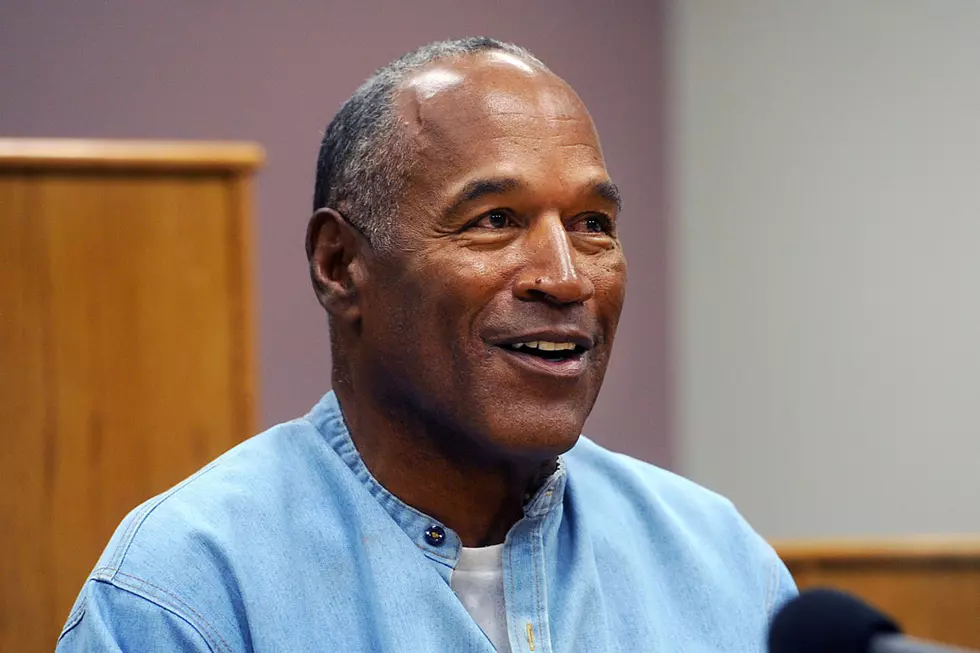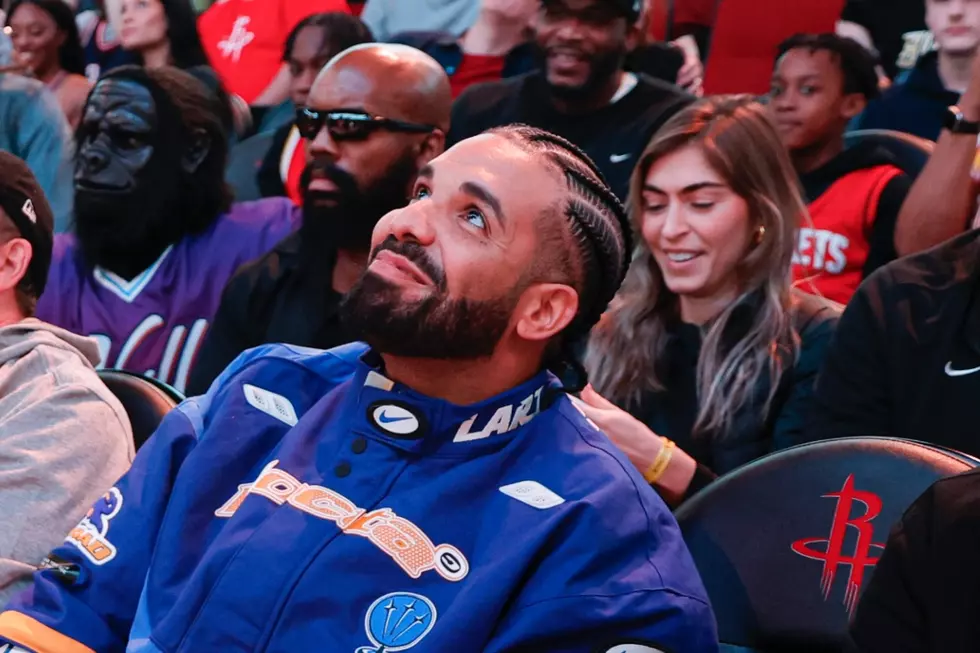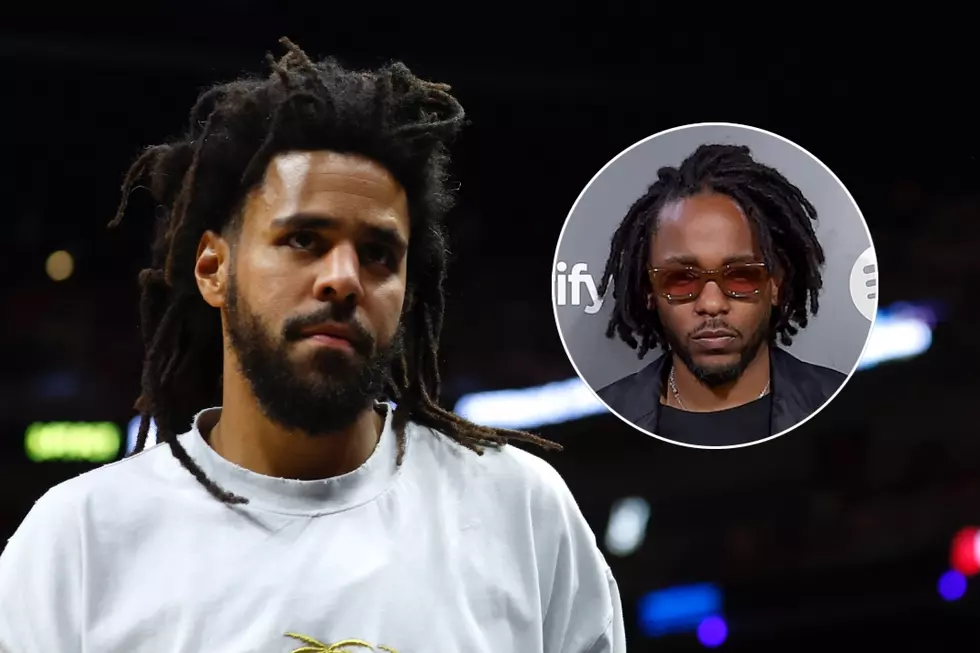
CyHi The Prynce Admits Sample Clearances Were Hardest Part of ‘No Dope on Sundays’ Album
Taking the road less traveled can be tedious, but the payoff can be tenfold once the destination is reached, a testament that CyHi The Prynce can attest to. The Stone Mountain, Ga. native has spent the last decade on a winding journey that has landed him on songs with the likes of JAY-Z and his longtime collaborator Kanye West. His trek has also found him in industry purgatory, with the lack of an official release date for a debut album haunting him for the better part of this decade. However, through all the ups and downs, patience has been a virtue that CyHi has held true to, biding his time with a succession of mixtape releases while building his reputation as a songwriter behind the scenes.
These days, staying the course looks to have paid off for CyHi The Prynce, as the rapper finally released his debut album, No Dope on Sundays, this past November. The LP, which features appearances from a cast of heavy hitters that includes Kanye, Pusha T, Schoolboy Q, Travis Scott, 2 Chainz, Jagged Edge, BJ The Chicago Kid, Estelle and Ernestine Johnson, is replete with high-brow lyricism and witty quips.
For this MC, who heads out on tour with Big K.R.I.T. in March, the moment is long overdue, but worth the wait. "It feels good, man," CyHi shares during a visit to XXL's office in Manhattan, N.Y. "The reception of it has been very well. So, I'm excited. I think it's something that people expected but didn't expect. People knew what I was capable of but to hear it actually come out and come to fruition, I think it made the fans very excited and some of the critics."
Since coming on the scene back in 2010, with his Royal Flush mixtape, CyHi's been putting in work for the last seven years with a string of releases and songwriting opportunities (he penned many of the tracks on Kanye's Yeezus album). He's made a name for himself, but also understands there is an entire group of rap fans who aren't familiar with his resume. "I know a lot of people who probably had certain ways of thinking about me or not knowing who I really am or where I'm really from," the 32-year-old says. "You just think I can just rap, but don't have no backstory. I think [No Dope on Sundays] gave everybody a chance to see who I am and where I'm from and what inspires all the other projects or mixtapes and freestyles or whatever I do, you kinda see the origin of what made me who I am."
With all of the acclaim No Dope on Sundays has been getting from critics and fans alike, CyHi The Prynce spoke with XXL about the making of his debut album, bringing the G.O.O.D. Music family back together and stepping into elite territory as an artist and MC.
XXL: Your new album is called No Dope on Sundays. What's the inspiration for the title?
CyHi The Prynce: I think it was something where I always grew up idolizing JAY-Z and how he used to be able to say different things or wear this and different stuff, so I always wanted that influence in a way, but in a positive way. So, early on when I was making the album, I didn't have a title to it, it was just the feeling I was getting. So, the songs started being so touching, I was like, man, these songs gonna touch people so much I can tell niggas to stop selling dope on Sundays and niggas won't sell dope.
I used to always say that when I was playing records. And then one day, my manager was like you should name your album No Dope on Sundays and I was like dang, that do sound crazy so I just went with that because I felt like that's something that kinda embodies who I am. My time in the streets versus my upbringing as far as spirituality and Christianity, kinda molding them into one, that kinda makes me who I am. Certain things in the streets I just had integrity with where most dudes didn't have that integrity so I think all that in a nutshell is what makes me who I am and No Dope on Sundays kinda illustrates that.
What would you say is the most sacrilegious thing you've ever done on a Sunday?
You know what's crazy, Sunday has always been a slow day for me, you know what I'm saying? It's always been me going to see my mom or going to church or just chilling. The most I probably did on a Sunday was go to a strip club or to the club. I can't just recall anything [crazy] that happened on Sunday, but I think that's something that's always been a part of me, just having that respect for that day.
Giving a chance to reset, evaluate what happened last week. Some dudes just live life rough, don't even sit back and look at it and then they go to prison and sit back and then they wanna reflect. So, all them things like that is just self-consciously massaging the brain for gradually getting outta the game or out of what you're into and getting into something positive.
Many have called you one of the more unsung lyricists in rap and the reception to the content has kinda backed that up. Were you motivated to silence any critics or show you were in the same class as other elite spitters on this album?
To me, it's crazy because I always knew I was just as talented as them, I just didn't wanna step on anybody's toes because I respected everybody I was around. I'm not a malicious guy where I just gotta be at the top, I gotta have the most hoes, I gotta have the most money, I'm just not that guy. So, I think to come around to it and people are putting me in that spot, I appreciate it because I always knew that I could eventually be in that spot.
I feel like if you just put us all in a room, all your favorite rappers in a room and tell us to rap and have the general public judge us, I would be one of the finalists [laughs]. So, I think on a musical level, I think it's cool to be able to translate that to music and an actual album.
You've released multiple mixtapes throughout the years. How did your creative process differ or evolve while making this album?
The process was a little different, but we were already transitioning to making stuff from scratch, but I think the hardest part was the paperwork [laughs]—clearances, all that. That's the most devastating part; the music is the easiest part. I thought it would be the other way around. It was getting everything cleared; that's what took six, seven months. The music already been done. Figuring how people are old, people are in the middle that don't got cellphones, you gotta fly out there, it's just so much you gotta do to get a song cleared that you'd never think you'd have to do. I learned a lot this album so next album I'm gonna try to get ahead of the curve.
Were there songs on the album that you held on to or had in the vault that may have been made a few years ago?
Everything is pretty [new]. I think "Get Yo Money" was something I had a year or two ago. I think out of everything, everything is pretty current. I think "Get Yo Money," that was probably the first joint I did because that kinda embodies the whole album, giving you that street knowledge but also that salvation of it, overcoming something. So, I think that's where we started the album at and then we just bridged and worked from there.
One of the standout songs on the album is the title track, which features Pusha T. How did that collaboration come together?
I always wanted Pusha to be a part of the album, but I felt like if Pusha T was on a song called "No Dope on Sundays"...
That's just fitting. It's like peanut butter and jelly.
And then Lex Lugor made the beat. He from Virginia and Pusha from Virginia so that like was an underlying thing that I wanted to do, put two Virginia dudes on the same track. So, I think that it was just something where I wanted the album to have a day and night to each part of the album. So, the first part, that's like the day of it and then when the thunder hit, boom, that's like when it goes to that Sunday night, Monday, when niggas getting back to it so that's kinda how I wanted the story to kinda feel.
Two other collaborations that have been getting a lot of buzz are your tracks with Schoolboy Q and Travis Scott. How did those two come together?
Well, ["Movin' Around"], the one with Schoolboy, a lot of this album was done at the end of [Saint] Pablo tour so when I met Schoolboy in New York at the Pablo tour, we just chopped it up and I told him I had a record I was thinking about putting him on so he told me he wanted me to send him the beat. And then the next time I seen him he said, "I got you on that track." So, I gave him the concept of what I wanted to do and he just knocked it out. He was still on tour too so we was just kinda passing each other, but thanks to Steve Jobs, we was able to get it done [laughs].
And Trav, ["I'm Fine"], that was done on the spot. Once again, we was in New York, we was at the Pablo tour and we was outside on the bus with Mike Dean. Mike Dean had his own studio bus. And we were working on some of Trav's stuff and then he asked me to play my stuff and I played a couple records and I had played that one and he was like, "I want that right now. You got the session?" I was like, "Yeah, I got everything," and he hooked it up. So, I think that was a blessing for me as well.
Speaking of the Saint Pablo tour, aside from making those two songs and linking up with Schoolboy Q and Travis Scott, what are some of the other moments from that tour that sticks or something that you took away from that whole experience?
Just seeing that show and how much it took to put that show together was extremely dope, but in a nutshell, just seeing a lot of guys come together, come to different shows. That was pretty cool because we don't get to see each other together that much. Other than that, it was nothing. ’Ye is pretty professional so it's really no wild moments backstage especially when you got a wife and kids. It ain't like when we was young.
So, I think it was just pretty professional. It was just cool to see Trav, [Kid] Cudi and everybody at the shows and at the event we had at Madison Square. All that was kinda like a concoction of what we do and kinda the family that we have at G.O.O.D. Music.
You likened your relationship to Kanye West to that of JAY-Z and Memphis Bleek on one of the songs from this album. What caused you to draw that comparison?
’Cause you know, Bleek was always Jay guy regardless of if he came out or not. He was always there and I think that was my way of showing the brotherhood between me and ’Ye. Plus I was a big JAY-Z fan growing up so it was just fitting for raps, you know what I mean? I just felt like the parallels was fitting, but I feel like I'm trying to take it to another level. That's all it really was.
You mentioned previously that Kanye will be producing the entirety of the upcoming albums from G.O.O.D. artists. How would you describe the overall camaraderie among all the artists compared to years past?
Well, when we was together all the time, everybody was kinda still on their way to stardom. It wasn't all the way there, but I think now it's more difficult because everybody's there. [Big] Sean's at his zenith, 2 Chainz is at the height of his career, Pusha same thing and so on and so forth. So, I think now it's a little harder to get together due to everybody's schedule and back in the day, it was kinda easier because everybody wasn't as busy, you know what I'm saying? So, I think that's the biggest part of it.
On top of that, how's the vibe in the studio? With Kanye doing all the production, it seems like you and the other G.O.O.D. Music artists would be working more closely together.
It's definitely like a assembly line. Whenever we're working, we always have different rooms and coming up with different ideas, coming up with different hooks. Even rhyme patterns, different rhyme patterns that ain't nobody use and stuff like that. More so it's really professional. It might be a lot of marijuana, that's probably it. A little liquor, alcohol in the room, but other than that it's just complete work, complete creativity.
Moving back to the album, one song that caught listeners' ears fairly quickly was "Nu Africa." What was the rhyme and reason behind making that track?
Just trying to give our communities other solutions than always running to the government to kinda fix our problems ’cause me, I'm a strong African individual so I don't be needing no handouts or nobody to help me with shit. I be feeling like sometimes that makes us look like we can't help ourselves. So, I think I wanted to give a creative way to show that's how fast we can take over.
That's how fast things can shift, that's how fast we can make our own products and do our own thing if we got back to where we originate from and empower that country and that continent and then we can kinda flourish from there. Even though we're already in America and some are in Europe and so on and so forth, I think it's still something we can always resort back to if we really wanna solve the true problem.
Your collaboration with BJ The Chicago Kid, "80's Baby," is another conceptual track that finds you painting a picture. What was your inspiration to attack the song from that angle?
I think it was something where my mom didn't know I was in her stomach ’til she was about six months so when she told me the story, it always stuck with me—her trying to hurry up and eat right. It's not that she was doing too much craziness ’cause I was the youngest so she kinda got it out her system already, but you might smoke a cigarette every now and then, you might take a shot [of liquor], you might just be eating whatever you wanna eat and six months later you find out you're pregnant and you're running trying to get it together.
So, I was just thinking, imagining how many young boys or young girls grew up like that. That [their] old man may not have been there and their mom might be stressed out or overworking herself on drugs or whatever. Having that voice because I thought this story was very urban and inner city-ish, but I realized White America is like this a lot and what I see is nobody's explaining my struggle how I'm explaining it. It's so detailed and it's so unbiased.
I ain't pointing no fingers. So you can sit back and say, "Damn, that's what's going on in that area." versus coming with an agenda and you already got your guard up, but this album you ain't have your guard up and you're like, "Dang, I didn't look at guys growing up in that environment in that way but the way he just put that out and articulated it." I just got a DM from a guy saying, "My girl had a abortion on me without telling me. Man, this shit making me heal." So different things like that, man. I be surprised what music does. Like, I knew it would do something, but to really hear the stories that come back from it is priceless.
Another song from the album that stands out is "Looking for Love," on which you do a lot of different melodies. How did that come together and how did it feel to do a different style because everybody's used to you spitting?
It was pretty cool because I am creative like that. A lot of times, being a writer, I have to go outside the box for other people, but even for myself, I always been a guy that sung in the choir, played in the band, I wasn't just no super tough nigga just trapping out every day, you know what I mean? I had other creative aspects to me so I just wanted to show another side to me ’cause I live in Atlanta and a lot of girls I date, they just go to the club every night. They wanna be seen, they wanna be host this, host that. And I'm like what are you getting outta that besides a couple of dollars. You ain't really working on no career.
It's no comfort, it's no security.
Once you stop being pretty, what you working on, you know what I mean? So, that was a song where I wanted to kinda inspire women to understand this is what kinda guy you want to invest in you, but also showing the guys to make sure you ain't hanging out every night and you can get someone like this. So, it's kinda talking to the male and female, but at the same time, I know a lot of the girls like that record so we definitely gotta shoot some visuals. It definitely got that groove.
What would you say were some of the more memorable moments from recording this album that you'll take away for years to come?
The most memorable moments is just buckling down and actually mixing and mastering it. I think the album was done so professionally. I haven't really had a chance to really enjoy it myself ’cause I have 10 different versions of every song ’cause I wanna hear how it sounds when the beat drop here and when it change here, so I've constantly been working on it. The environment was very professional, it was very strict, it wasn't like we couldn't do nothing in there, but I'm in there to work.
So, I think just the moment of finishing it and being able to turn it in was probably the biggest moment ’cause we had so many debates. What should be here? What should be there? What should we take out? What should we keep? Then getting over the point of the samples and the clearances, that was the most exhausting part. I would say that's the highlight [laughs]. And then I went straight to New York to start promoting and L.A. and I'm back in New York so I haven't had a chance. Maybe when I get a couple of days to sit back and reflect.
All artists set out to make a statement with their debut album. What was yours and do you feel like you accomplished that?
I never looked at it as a competition thing or what mark I would hit or numbers. I just wanted to know it was well-received by the people who got it and did you get something from it. Do you take something that inspires you, heals from you ’cause you might've went through the same situation, so on and so forth. So, I think those different things, when I get those type of reactions, that's the biggest reward for me. It's not really the numbers for me, even though I got the No. 1 album on iTunes. Even though I got that, I think just seeing people's reaction and the emotion that's coming over people when I'm talking about these different topics and it's just touching them. I think that's the most rewarding thing in the process.
See New Music Releases for December 2017
More From XXL
